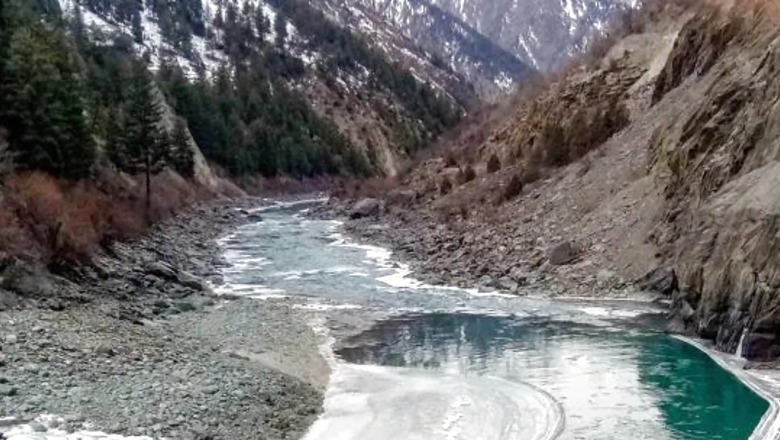
views
India has issued a notice to Pakistan over the Indus Waters Treaty (IWT) of September 1960 and has sought a modification in the treaty. The notice was issued on Wednesday, following Islamabad’s “intransigence” on its implementation, government sources said on Friday. Pakistan is now expected to enter into intergovernmental negotiations within 90 days.
India stated that it had made repeated efforts to find a mutually agreeable way forward, but Pakistan refused to discuss the issue during the five meetings of the Permanent Indus Commission from 2017 to 2022.
According to sources, the World Bank has recently initiated actions on both the Neutral Expert and Court of Arbitration processes. To this, India states that such a parallel consideration of the same issues is not covered under any provision of IWT.
While Pakistan takes its time to respond to the notice, and if IWT undergoes modification, both India and Pakistan will have a chance to incorporate the lessons learned over the last 62 years.
Notably, the World Bank had appointed a “neutral expert” and a chairman of the Court of Arbitration regarding the Kishenganga and Ratle hydroelectric power plants in October last year. Michel Lino was appointed as the Neutral Expert and Sean Murphy was appointed as Chairman of the Court of Arbitration, a PTI report said.
India and Pakistan signed the IWT in September 1960 after nine years of negotiations, with the Washington-based World Bank being a signatory. The treaty sets out a mechanism for cooperation and information exchange between the two countries regarding their use of the rivers.
The key conflict however, is that India and Pakistan disagree over whether the technical design features of Kishenganga and Ratle hydroelectric power plants contravene the Treaty.
In 2016, Pakistan unilaterally retracted this request and proposed that a Court of Arbitration adjudicate on its objections, the sources said.
‘They said this unilateral action by Pakistan is in contravention of the graded mechanism of dispute settlement envisaged by Article IX of the IWT. Accordingly, India made a separate request for the matter to be referred to a neutral expert.
“The initiation of two simultaneous processes on the same questions and the potential of their inconsistent or contradictory outcomes creates an unprecedented and legally untenable situation, which risks endangering the IWT itself,” the source said.
Hours later, Pakistan has reacted on it and said, “As we speak, a Court of Arbitration is holding its first hearing in The Hague on Pakistan’s objections to Kishanganga and Ratle Hydroelectric Projects. The Court of Arbitration has been set up under the relevant provisions of the Indus Waters Treaty. Such media reports should not divert attention from the important proceedings of the Court of Arbitration.”
Read all the Latest India News here




















Comments
0 comment